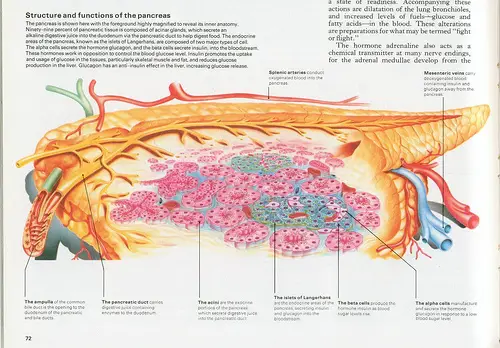The pancreas essentially controls the body's blood sugar level. The two main functions associated with the pancreas are broadly the secretion of certain hormones that are meant to regulate blood glucose levels and production of enzymes which act to break down digestible foods.
The first function is handled by the endocrine pancreas which produces many essential hormones such as insulin and glucagon. The latter is dealt with by the exocrine pancreas, which gives out pancreatic juice which holds digestive enzymes.
The 'islets of Langerhans' is the title given to the endocrine cells belonging to the pancreas. Regulation of the blood glucose level is an important element in the treatment of diabetes. Diabetes could be Type 1 (severe with an onset typically in childhood) or Type 2 (more common).
The first function is handled by the endocrine pancreas which produces many essential hormones such as insulin and glucagon. The latter is dealt with by the exocrine pancreas, which gives out pancreatic juice which holds digestive enzymes.
The 'islets of Langerhans' is the title given to the endocrine cells belonging to the pancreas. Regulation of the blood glucose level is an important element in the treatment of diabetes. Diabetes could be Type 1 (severe with an onset typically in childhood) or Type 2 (more common).

